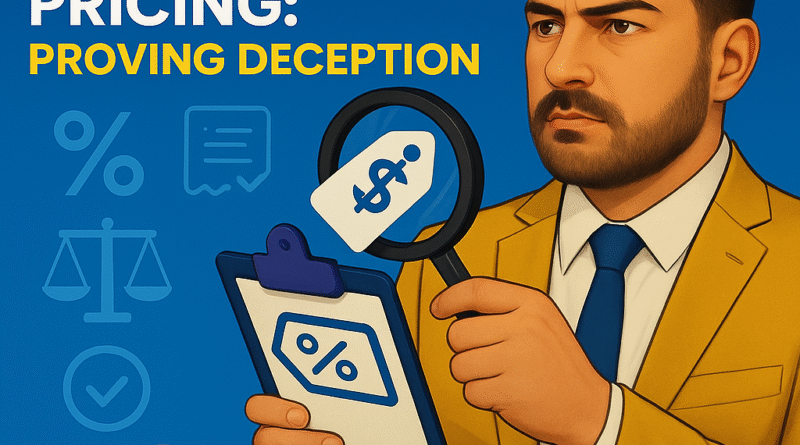White-Collar Exemptions Explained: Salary Basis, Level & Duties Tests
Context. In U.S. wage-and-hour law, the “white-collar exemptions” are the main doorway an employer uses to say: “this employee is not entitled to overtime.” But the Fair Labor Standards Act (FLSA) is strict: to classify someone as exempt, the employer must usually satisfy three tests at the same time — salary basis, salary level and duties test. If any one of these is missing, the exemption fails and the worker is owed overtime.
1. Why the white-collar exemptions exist
The FLSA was written to protect workers who do routine, non-managerial, hourly-type tasks from long hours without extra pay. At the same time, Congress recognized that certain higher-level roles — executives, administrators, professionals, some computer employees, and outside salespeople — are paid to get results, not just to work a set number of hours. Those roles were carved out of overtime through what we now call the white-collar exemptions.
However, these exemptions are narrowly construed against the employer. The burden is on the employer to prove the exemption. A job title like “manager” or “coordinator” is never enough. What matters is how the person is actually paid and what the person actually does.
2. The three-part structure of most FLSA white-collar exemptions
For the core categories — executive, administrative and professional — the FLSA and the U.S. Department of Labor (DOL) require that all three conditions below be met:
- Salary basis test – the employee is paid a fixed, predetermined amount every pay period, not reduced because of variations in the quality or quantity of work;
- Salary level test – the employee’s weekly salary meets or exceeds the DOL’s minimum salary threshold in effect;
- Duties test – the employee’s primary job duties are executive, administrative, professional (or in some cases computer or outside sales) as defined by the regulations.
If one leg is missing, the stool falls. A highly paid worker who is docked for partial-day absences may fail the salary basis test. A person who is paid on a salary but mostly cleans, stocks or follows scripts may fail the duties test. And a person with the right duties but paid below the threshold may fail the salary level test.
Salary basis
Fixed pay, not tied to hours; no short-term docking.
Salary level
Weekly pay at or above DOL’s minimum salary.
Duties test
Real day-to-day work is executive / admin / professional.
3. Salary basis test — how you pay matters
The salary basis test asks: is the employee guaranteed a set amount each week (or pay period) that is not reduced for time worked? Under 29 C.F.R. Part 541, an employee is on a salary basis if they “regularly receive each pay period on a weekly, or less frequent basis, a predetermined amount … which is not subject to reduction because of variations in the quality or quantity of the work performed.”
Key points:
- Permitted deductions include full-day absences for personal reasons, some disciplinary suspensions, and unpaid FMLA leave.
- Improper partial-day docking — for example, cutting 3 hours from a salaried employee’s pay because they went to the doctor — can destroy the salary basis.
- Pay can be delivered as salary plus bonus or commissions, but the base salary must still meet the minimum threshold.
- Employers should have a safe harbor policy to fix improper deductions quickly; otherwise, a pattern of deductions can make the entire class of employees non-exempt.
Why is this so strict? Because overtime-exempt employees are assumed to have predictable pay. If the employer treats them like hourly staff when it wants to save money, but like salaried staff when it wants extra hours, the exemption cannot stand.
4. Salary level test — how much you pay matters
The DOL sets a minimum weekly salary that most white-collar exempt employees must receive. This figure has changed over time and may be adjusted again by rulemaking, so HR and payroll must monitor current DOL guidance. If the employee is paid even $1 below the required amount in a particular week, the exemption may fail for that week.
Important dimensions of the salary level test:
- It is a floor, not a target — employers can and often should pay above it.
- Some bonuses and incentive payments may be used to satisfy a portion of the salary level if they are non-discretionary and paid at least annually (subject to DOL rules).
- There is a highly compensated employee (HCE) variation: employees who earn above a much higher annual amount and who perform at least one exempt duty can sometimes be treated as exempt more easily.
But the core idea is simple: low pay and exemption don’t mix.
5. Duties tests — what the employee actually does
The third part is the one most employers get wrong. A job description may say “manager,” but the employee may spend 85% of the time running a cash register. The DOL looks at primary duty — the principal, main, major or most important duty the employee performs. Let’s look at the main categories.
5.1 Executive exemption
To qualify, an employee’s primary duty must be managing the enterprise (or a recognized subdivision), they must customarily and regularly direct the work of at least two or more full-time employees or the equivalent, and they must have the authority to hire or fire — or their suggestions on such changes must be given particular weight. A lead cashier who cannot discipline anyone will have trouble meeting this test.
5.2 Administrative exemption
This one is often abused. The administrative exemption is for employees whose primary duty is office or non-manual work directly related to the management or general business operations of the employer or its customers, and whose primary duty includes the exercise of discretion and independent judgment with respect to matters of significance. Routine clerical workers, help-desk staff following scripts, and employees who must seek approval for every small step usually do not qualify.
5.3 Professional exemption
Learned professionals (doctors, lawyers, engineers, certain nurses, accountants) and creative professionals (writers, designers, artists) may be exempt when their work requires advanced knowledge in a field of science or learning, customarily acquired by prolonged specialized instruction. The key is the advanced knowledge component and the use of judgment.
5.4 Computer and outside sales
Certain computer systems analysts, programmers, and software engineers can be exempt under looser salary/hourly rules if they meet specific duty descriptions. Outside sales employees who are customarily and regularly engaged away from the employer’s place of business to make sales or obtain orders are also exempt and are not subject to the salary test.
At-a-glance duties map
- Executive → manages people
- Admin → runs the business ops
- Professional → advanced knowledge
- Computer → high-level IT/Dev
- Outside sales → sells off-site
6. Common mistakes employers make
- Title-only exemptions. Calling someone “assistant manager” but assigning them cashier and stocking work most of the week.
- Improper deductions. Docking salaried employees for partial-day absences or slow periods, destroying salary basis.
- Outdated salary levels. Not updating pay when DOL raises the threshold.
- No duty review. Never re-auditing actual daily tasks after hiring.
- Assuming remote workers are exempt. Location does not make a job exempt — duties and pay do.
7. Conclusion
White-collar exemptions should be seen as a precision tool, not a blanket. To apply them correctly, employers must: (1) pay on a true salary basis; (2) meet or exceed the current DOL salary level; and (3) document that the employee’s primary duty is truly executive, administrative, professional, computer, or outside sales. Any shortcut — title inflation, docking, or ignoring new DOL thresholds — creates wage-and-hour exposure, including back overtime, liquidated damages, and attorneys’ fees. For workers, the message is the mirror image: if you are salaried but heavily controlled, doing production work, or being docked, you may be misclassified and entitled to overtime.
Quick Guide (EN)
Goal: Decide if a white-collar employee is really exempt from overtime.
Step 1 – Salary basis. Is the employee paid a fixed amount every week regardless of hours or minor variations? No improper partial-day deductions? If “no,” stop — not exempt.
Step 2 – Salary level. Does weekly pay meet or exceed the current DOL threshold for executive/administrative/professional employees? If “no,” stop — not exempt (unless special rule: outside sales, some computer workers, or HCE with different test).
Step 3 – Duties test. Is the primary duty management, business operations with discretion, or work requiring advanced knowledge or creative talent? Or is it mainly routine, production, clerical, or customer-service work? If it’s the latter, the exemption fails.
Step 4 – Document. Keep job descriptions, organizational charts, and pay records. Have a safe-harbor policy for mistaken deductions.
Bottom line: All three must be satisfied, and the burden is on the employer.
FAQ (EN)
1. Are all salaried employees automatically exempt?
No. Salary is only one piece. Without meeting the salary level and duties tests, a salaried worker can still be non-exempt.
2. Can I dock an exempt employee’s pay when business is slow?
Generally no. Frequent or improper deductions can destroy the salary basis and undo the exemption.
3. Do job titles matter?
Only a little. DOL and courts look at what the person actually does — their primary duty.
4. What if an employee supervises only one person?
The executive exemption normally requires supervision of at least two full-time employees or the equivalent.
5. Can bonuses count toward the salary level?
Sometimes. Certain non-discretionary bonuses and incentive payments can be credited toward a portion of the salary level, subject to DOL rules.
6. Are outside sales employees subject to the salary test?
No. True outside sales employees are exempt without meeting the salary basis or salary level test.
7. What is a highly compensated employee (HCE)?
An employee making at least the HCE annual amount and performing at least one exempt duty may be treated as exempt under a relaxed test.
8. Does remote work affect the exemption?
No. Remote or hybrid status does not decide exemption. Pay method and duties do.
9. Can an employer fix an improper deduction?
Yes. A clear safe-harbor policy and prompt reimbursement can preserve the exemption.
10. What happens if the exemption fails?
The employee is treated as non-exempt and may be owed overtime, plus liquidated damages and attorneys’ fees.
Technical Basis & Legal Sources (EN)
- Primary authority: Fair Labor Standards Act, 29 U.S.C. §§ 201–219.
- Regulations: 29 C.F.R. Part 541 (defining the white-collar exemptions, including salary basis, salary level, and duties tests).
- Salary basis: 29 C.F.R. §§ 541.602–603 (predetermined amount; permitted deductions; effect of improper deductions).
- Executive, administrative, professional duties: 29 C.F.R. §§ 541.100–541.304.
- Outside sales and computer employees: 29 C.F.R. §§ 541.500–541.602.
- Highly compensated employees: 29 C.F.R. § 541.601.
- DOL guidance & Field Operations Handbook – interpretive materials used in investigations.
- Key principle: Exemptions are construed narrowly; employer bears the burden.
These materials do not replace an attorney. FLSA exemptions can change with new DOL rules and court decisions, and state laws may set stricter overtime standards. For an actual case, consult a qualified labor and employment lawyer or the U.S. Department of Labor.

